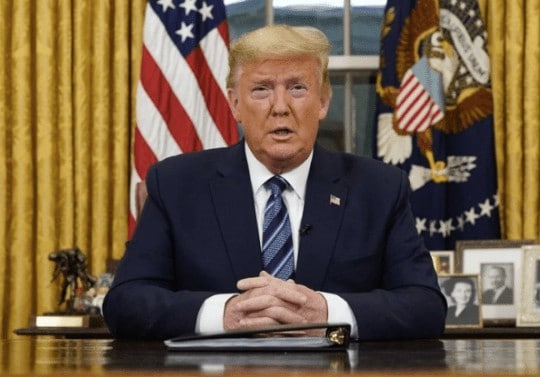Efforts to contain the coronavirus pandemic have erupted into a disastrous and panicked shutdown of the economy by Western governments. The term “Marshall Law” (correct spelling: “Martial Law”) trended on Twitter last weekend. While many scoffed at this characterization of coronavirus containment efforts, it’s not entirely off base.
In New York City, police can arrest bar and restaurant owners if they remain open. That’s to stay compliant with the mayor’s strict executive order to lock down the city:
“Patrons and operators who do not comply with the executive order could face a disorderly conduct summons and, in more severe cases, arrest for not complying, according to an advisory to NYPD.”
These measures to contain coronavirus are a chilling echo after the last century’s police state edicts throughout the world. Many of them were also ostensibly for the public welfare, and a response to emergencies of the time. It’s almost sure that these strange exercises will not wreak the level of carnage that 20th Century authoritarianism did. But there’s no doubt coronavirus, and the reaction to it has deeply wrinkled the economy and fabric of society.
The economic disruption from the coronavirus containment orders is so severe; the Federal Reserve slashed interest rates to zero last weekend. Then stepped up money market injections with $1.5 trillion to pump, and will even move into purchasing municipal bonds.
Meanwhile, politicians Left and Right, from US Senator Kamala Harris (D-CA) to the Trump Administration, are calling for Andrew Yang-style disbursements of public funds to all American citizens. It looks like there will be $1000 checks going out to everyone soon. The US Internal Revenue Service (IRS), for now, has waived all fees and interest on tax payment deferments for up to 90 days.

Still, if the coronavirus’ direct impact on public health is not as bad as feared, it could mitigate some of the damage. And a return to normalcy might be swift and relatively seamless. The world’s people and economy are more resilient and resourceful than ever in the 21st century. The world’s finances could bounce back quickly. This would be an ideal scenario.
The following topics are probably the crucial two conditions that need to be met for this financial crisis to start showing signs of recovery.
Condition #1: The Coronavirus Is Under Control, New Cases Slow
New confirmed cases of coronavirus have already slowed days ago in China. In South Korea, there’s a slowdown in new cases as well. Notably, the East Asian country accomplished this without any of the lockdowns that we’ve seen in Italy, the US, and other countries:
“South Korea has emerged as a sign of hope and a model to emulate. The country of 50 million appears to have greatly slowed its epidemic; it reported only 74 new cases today, down from 909 at its peak on 29 February. And it has done so without locking down entire cities or taking some of the other authoritarian measures that helped China bring its epidemic under control.”
Another reason to have hope: South Korea’s mortality rate from COVID-19 is extremely low (about 0.6%). If major world economies like the US and Eurozone follow the same trends as South Korea and China, it may all be over sooner than we think.
Condition #2: No Major Country, Company or Bank Goes Bankrupt
Once the coronavirus pandemic is clearly contained, we’ll have to await the financial reports to see the extent of economic damage. If no major corporations or banks go bankrupt, we might be in the clear. A shallow recession is likely, according to most financial analysts, at this point, but we may avoid a miserable recession or even a prolonged depression.
If coronavirus is contained by September, and there are no Lehman Brothers’ style collapses, confidence could surge quickly. At that point, we may see the stock market and other securities rally. Remember, equities are pricing future expectations, not the present and the past.
But this is not at all assured, just a plausible best-case scenario. Hard-hit Italy is teetering on the brink of economic collapse. State unemployment offices in the US have been slammed with a massive surge in applications. The world economy may recover quickly if there are no more shocks to the system, but it’s in a precarious position.
Be Greedy When Others Are Fearful
Here’s what it means for investors: Right now is a potentially brief window of opportunity to capture assets at value. Investing extraordinaire, Warren Buffett, “The Oracle of Omaha,” says to be afraid when others are greedy, and greedy when others are fearful.
But if you take this advice and go on a shopping spree for securities, do exercise caution and acquire slowly. The market bottom may not be in yet until these lagging indicators flash green some time from now. And in a worst-case scenario, an event on part with the Great Depression is not out of the cards. In which case, investors may want to go running for safe-haven assets like gold and (maybe) Bitcoin, just like the most recent crisis of 2008.
* Disclaimer: This article is the opinion of the author and does not represent professional financial or investing advice.
The post Coronavirus Financial Crisis: How Can You Tell It’s Over? The Two Must-Meet Conditions appeared first on CryptoPotato.
The post appeared first on CryptoPotato






